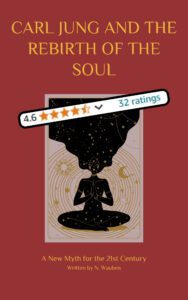Previously I have written an article listing the 5 scariest/spookiest philosophers of all time. Arthur Schopenhauer, with his unique, elaborated, but scary philosophy earned a place on this list as well. In this article I will discuss the interesting, but equally frightening philosophy of Arthur Schopenhauer.
Table of Contents
The World as Will and Idea
In his book The World as Will and Idea, Arthur Schopenhauer elaborately explained his philosophy. According to Schopenhauer, the world that we observe exists only in our brains i.e., the objective world is created through our subjective world. Schopenhauer argued that this ‘truth’ is the most definite: “For that the objective existence of things is conditioned by a subject whose ideas they are, and consequently that the objective world exists only as an idea, is no hypothesis, and still less a dogma, or even a paradox proposed for the sake of discussion. It is the most certain and the simplest truth.” (p.13)
Moreover Arthur Schopenhauer questioned whether the world would even exist if there were no subjects to perceive it, because, as far as we can tell, according to Schopenhauer, the world exists only in our brains: “For this perceptible and real world is clearly a phenomenon of the brain; hence there is a contradiction in the assumption that as such it ought also to exist independently of all brains.“ (p.14)
The Relationship between the Object and the Subject
This results in an interesting relationship between the subject (our brains) and the object (the world). Schopenhauer even created a hypothetical dialogue between our brain and the world; both arguing over who is more important.
In this dialogue the brain argues that the world is entirely its own idea and exists only through this idea: “I am, and besides me there is nothing. For the world is my idea.” (p. 22) The world would then, however, argue, according to Schopenhauer, that the brain is merely a part of this world, even a part that exists solely because of some accident: “I am, and besides me there is nothing, for the world is my fleeting form. You are merely the sum of a part of this form, and entirely accidental.” (p.22)
After arguing back and forth for a while, the brain and the world come to the conclusion that they are both dependent upon eachother for their existence. On the one hand, without the brain, and therefore consciousness, the world would not exist because there would be no subject to perceive it. On the other hand, without the world the brain would not exist because there would be nothing for the brain to perceive.

Why do the Object and the Subject Exist?
An important question remains, however, unanswered according to Schopenhauer: what is the origin of the existence of the object and the subject? Arthur Schopenhauer believed that the answers that had been given up until the point of his philosophy were insufficient: “The most complete aetiological explanation of the whole of nature can never be more than an inventory of forces which cannot be explained.” (p.30)
Schopenhauer indicated that it is not sufficient for us to merely know that we have ideas about the world, we also need to know where these ideas come from. Schopenhauer believed that, in order to find the origin of these ideas, we must look inward: “However much we investigate, we can never reach anything but images and names. We are like a man who goes round a castle, in vain seeking an entrance, and sometimes sketching the external walls. And yet this is the path taken by all the philosophers before me.” (p.31)
Schopenhauer argued that if we analyse the forces manifesting themselves within our own ‘walls’ we will conclude that these forces are a manifestation of our ‘will’: “The subject of knowledge, in his phenomenal existence as an individual is given the answer to the riddle, and the answer is will. This, and this alone, gives him the key to his phenomenal existence, the reveals the meaning, shows him the inner working of his being, of his behaviour, of his movements.” (p.32)
Will
Will, according to Schopenhauer, is not something that only manifests itself in man. Instead, every phenomenon occurring in nature, including the growing of plants, the creation of crystals and the force of gravity is a manifestation of will. Fundamentally, Schopenhauer believed that the events which we would usually describe as a manifestation of force(s), should be described as a manifestation of will: “The concept of will has hitherto commonly been subordinated to that of force, but I do the very opposite, and desire that every force in nature should be thought of as will.” (p.43)
In this sense, will is the essential ingredient of every observable and non-observable phenomenon. It underlies every imaginable activity, development, movement etc…Schopenhauer even claimed that we humans are merely a ‘phenomenon of will’: “We fail to see that the individual, the person, is not will as a thing-in-itself, but is a phenomenon of will, and as such is already determined and has entered into the form of the phenomenal, the principle of sufficient reason.” (p.45)
Whereas Carl Jung observed that we might not possess free will because of a multitude of unconscious forces playing a role in our conscious decision-making process, Schopenhauer argued that we do not possess free will because all our actions are merely a phenomenon of will and subject to will. For example, consciousness, according to Schopenhauer, is necessary for the search for food, and as such it is used by the will as a tool to preserve the species. Schopenhauer believed that this also explains why consciousness does not develop until birth:
“From the point, therefore, at which the animal has freed itself from the egg or the womb in which it has vegetated without consciousness, its food must be sought and selected. Thus movement following upon motives, and for its sake, consciousness becomes necessary; and so it enters upon the scene as a mechanical aid […] needed at this stage of the will’s objectification for the preservation of the individual and the propagation of the species.” (p.76)

Why the Will will Continue to Will
Knowledge is equally a means used by the will to maintain an individual: “Any knowledge, rational as well as merely perceptual, proceeds originally from the will itself […] a means of supporting the individual and the species, just as much as any other organ of the body.” (p.78) This would also explain why we continue to strive for more knowledge.
If will is indeed a sort of force moving organisms, including humans, in a certain direction, one might wonder whether it will ever reach its goal and stop ‘willing’. Schopenhauer believed that this was not the case, and that the will, will always continue to will.
Schopenhauer indicated that a wish or desire, once it is fulfilled, will quickly result in a new wish or desire. Schopenhauer observed that happiness is characterized by the speed and frequency in which this circle is completed and restartedagain:
“We consider ourselves fairly fortunate if there is still something to wish for, and to strive after, to keep up the game whereby desire constantly passes into satisfaction, and satisfaction into new desire – if the pace of this is swift, it is called happiness, and if it is slow, sorrow – and does not falter and come to the standstill that shows in dreadful, stultifying boredom, in lifeless yearning without a definite object, a deadening languor.” (p.85)
Conclusion
After reading this article you might come to the conclusion that Arthur Schopenhauer’s philosophy was not the most encouraging. Schopenhauer believed that the world exists only as an idea within our brains, and that all that we do in this world, together with all the other existing organisms, is fuelled by an unsatisfiable will.
At the same time, however, Schopenhauer believed that there was a way for us to free ourselves from our servitude to will: “how in individual people knowledge can elude this servitude, throw off its yoke, and free from all the will’s purposes, exist purely for itself, simply as a clear mirror of the world.” (p.78) In a future article I will discuss how Schopenhauer believed we could transcend our will. If you do not want to miss this more positive discussion on the philosophy of Arthur Schopenhauer, then please subscribe to my newsletter here to receive updates whenever I post a new article.

